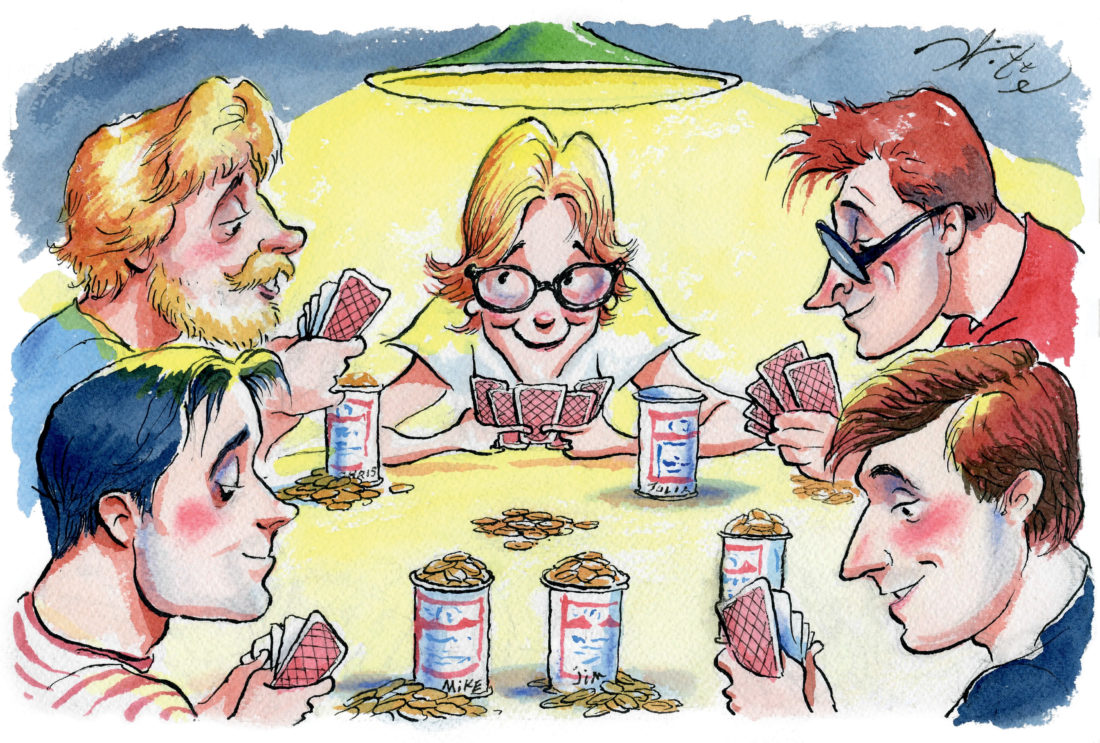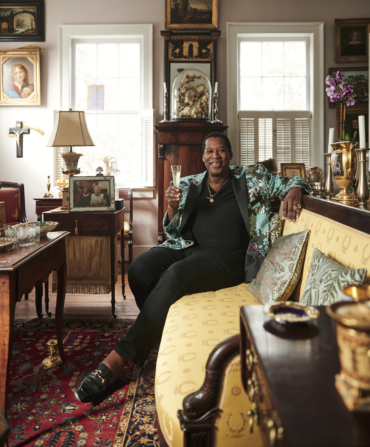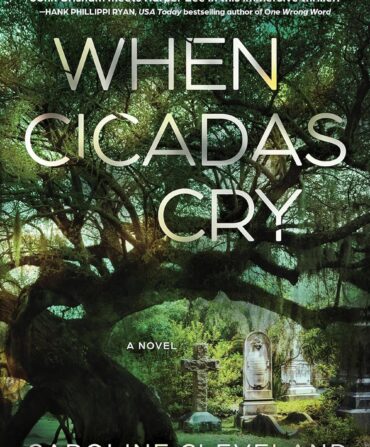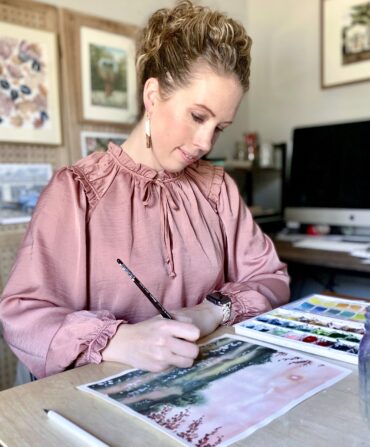With the exception of my maternal grandfather, who was a baseball star at Vanderbilt and a member of Augusta National, I do not come from a sporty family. My father was known to bet on football (our bookie was the oyster shucker at Doe’s Eat Place), but his were the solitary athletic pursuits of swimming and running with only one goal in mind: to live a very long time. My mother played tennis until her knees could no longer stand it, and I rode horses well into my adolescence. But my best friend and I were always the last to be picked for teams in gym class; our seventh-grade cheerleading tryout was more protest than serious.
The one thing we could all do was play cards. My paternal grandparents had a card room in their house devoted to my grandmother Kay’s energetic afternoon bridge games and the solitaire my grandfather Lyman played into the wee hours. (One of my chief running buddies lived a few doors down, and when I’d drop her off—almost invariably long past our curfew—the only light on the whole street shone through the window of that room, silhouetting Lyman’s intent profile and quick hands laying out the cards.) When my father was in college, he got a summer job on a freighter bound for Ireland on which he won countless pots of cigarettes (nobody had any money, because they’d yet to be paid) playing poker. When the ship docked in Dublin, a prolonged stay since the hull turned out to be cracked, he sold his winnings (he didn’t smoke) and had a glorious summer he still talks about with great affection.
Though he was clearly good at poker and learned to play craps for hot tamales as a kid in Caruthersville, Missouri, it was not my father who taught me how to play, but Louis King, my maternal grandmother’s houseman in Nashville. Louis and his daughters Ernestine and Josephine gathered around the blue Formica table in the kitchen every afternoon at five o’clock. Ernestine would have dinner mostly ready and waiting while my grandparents knocked back martinis during a prolonged cocktail “hour.” At first, I sat cross-legged on the counter fascinated by this daily ritual, and finally, when I was eight, Louis relented and taught me how to play. We played nickel-ante five-card draw and stud, and I loved every second of the camaraderie, the whoops of victorious laughter, and, most of all, the vivid trash talk. Louis had coal-black skin and pale blue eyes and had gone to work for my great-grandmother when my grandmother was a girl not much younger than he. “I used to be a cat,” Louis reminded me pretty much daily, and I knew it to be true based on tales of his infamous activities after my great-grandfather died in 1958, leaving Louis an extremely generous sum. My grandmother insisted that Louis deposit his inheritance in a newly opened account at the bank, delivering a solemn lecture on frugality, the importance of saving, etc. She then did not see Louis again for exactly three months, during which he bought automobiles and fur coats for various lady friends, went to Chicago on a festive but ultimately unsuccessful gambling spree, and returned home on the train exhausted but ready to take his job back. Decades after the fact, he still chuckled over my grandmother’s utter outrage, which didn’t last long as they were fast friends and confidants. Like me, his eldest daughter was given her name.
Louis’s excellent tutelage meant that about the time I started junior high school, I was allowed a place at another poker table, one closer to home in the vast “playroom” at our neighbors the Yarbroughs’. Dr. and Mrs. Yarbrough reigned cheerfully over a menagerie of three boys and three girls, a couple dozen guinea pigs, a box turtle, a parakeet (who flew freely around the house), countless dogs and cats, a longhorn steer, a mule, and a couple of ponies. Mrs. Yarbrough was a gifted artist and a great cook possessed of an enormous heart, a jolly sense of humor, and no small amount of psychic powers (she gave me a long-ago palm reading that I now know to be accurate and had a vision just before my grandmother Julia’s death). I had known the family all my life—the youngest daughter, Nell, and I were the same age, and I’d had a hard crush on the middle son, Chris, ever since he stole my library books on the bus—but at thirteen, the boys suddenly became even more interesting, especially since they had a small posse of equally good-looking and hilarious friends. The playroom, at the opposite end of the house from where the adults hung out, was excellently appointed with a pool table, a stereo, an enormous TV, a collection of broken-down sofas and recliners, an ancient refrigerator filled with beer, and a round wooden poker table. I walked down the road while it was still light and was returned home just before eleven—one of the gang dropped me off on his way to his shift at the local carpet factory in his rust-colored Gran Torino complete with flames painted down the sides.
In the hours in between, we played penny-ante Texas Western (our name for Texas Hold’em, my least favorite), five- and seven-card stud, five-card draw, and Bourré, the trick-taking game popularized in Louisiana and Americanized to Boo-ray. Shockingly, I have a pretty good poker face—when I lost, it was because I couldn’t bear not to stay in the game. Like Kenny Rogers, I knew when to fold ’em, I just had a hard time bringing myself to do it. I “booed” so many times in Boo-ray my nickname (etched on the beer can that contained my pennies) was “Boolia” and I was regularly regaled with a chorus of “Boolie, Boolie,” sung to the tune of Sam the Sham’s “Wooly Bully.”
Winning, though, was hardly the point of the exercise. In that room, with that family and their group of pals, I learned all that is important about life and love and friendship. Over the years, I developed crushes on nearly all the guys, acted upon in ways that now seem almost touchingly innocent. We watched endless loops of Monty Python movies, played cutthroat pool, mixed garbage pails of Yucca Flats in the hot months, drank copious amounts of beer (including the then exotic Coors that my father brought back from Texas in his little plane), and chowed down on Mrs. Y.’s specialties, which ranged from exotic kibbe to a memorable angel food cake stuffed with melted Hershey’s Milk Chocolate with Almonds mixed with Cool Whip. There were games of touch football (at which I was an honest and enthusiastic cheerleader), forays to our backyard pool for epic games of Marco Polo, but most of all there was the music.
There’s a brilliant must-see 2013 documentary called Muscle Shoals, which tells the supremely unlikely story of the world-changing music that came out of the studios located in the Tennessee River town of eight thousand. About midway through, there’s a clip of Wilson Pickett, who’d recorded most of his career-making hits with the legendary white-boy band the Swampers (Pickett affectionately called them “peckerwoods”), talking about a new guitarist on the scene by the name of Duane Allman. Allman, not yet famous for his soul-shattering bottleneck, stayed in the studio with Pickett while the rest of the band went to lunch (they were used to the stares they got when they ate with the black artists, but a long-haired hippie was too much). By the time the band was back, Allman had persuaded Pickett to record the Beatles’ “Hey Jude,” and Swampers guitarist Jimmy Johnson describes a moment from it in the film: “When you get to the vamp, it goes into an unbelievable groove. Duane Allman was playing such great guitar fills that something happened in that vamp. And all of a sudden, there was Southern rock.” This was the music I was baptized with in that playroom.
By then Duane had been killed in a motorcycle accident, but the Allman Brothers were king. We listened to At Fillmore East, Eat a Peach, and Brothers and Sisters until the grooves wore out; we were on a first-name basis with Gregg and Jaimoe, Berry, Butch, and Dickey. I didn’t know it at the time, but most of what we listened to came out of Muscle Shoals: the best tracks of the Stones’ Sticky Fingers, Pickett and Percy Sledge, the hot new Lynyrd Skynyrd (whose “Sweet Home Alabama” references the Swampers). Even when the LPs were recorded elsewhere, the guitarists ruled the stereo: Derek and the Dominos, Jeff Beck, Roy Buchanan, Rory Gallagher, Jimi Hendrix, Dave Mason, Neil Young. A few years into it, Marshall Tucker and Wet Willie joined the mix. A girl could not have had a finer musical education, and when I listen to any of those artists, all of whom occupy prime real estate on my playlists and in my ancient vinyl library, I am transported back to that poker table with those people and that laughter, and I am tearing up now even writing about it.
And that’s the thing. I mean, who wouldn’t love to win hundreds of thousands of dollars playing poker in Las Vegas or wherever those professional players go? But those rooms are sterile and joyless. That kind of poker is devoid of the alchemy that happens when you mix booze and beer, nonstop teasing and commentary on the world’s great music, an occasional piece of yummy cake, and a whole lot of goodwill and love. Lately, I have been fortunate enough to run into Nell and Chris quite a bit, and all we talk about is reuniting the gang for one more epic game. I think we can safely graduate from pennies to dollars or maybe go for something more memorable. After all, we grew up down the road from the town of Midnight, Mississippi, so named because it was won in a poker game at that hour. Whatever the stakes, I definitely need to bone up on my Boo-ray skills. It is past time to bury Boolia.








